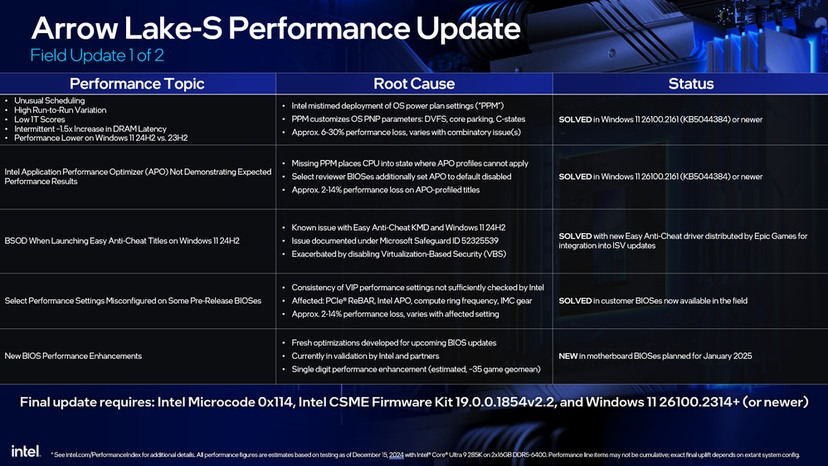Intel’s latest Arrow Lake CPUs, released in October, were introduced with promises of delivering high performance at lower power levels. However, initial reviews, including The Verge’s, highlighted unexpectedly subpar gaming performance. Tom Warren noted that the Core Ultra 9 285K “provides worse performance than the 14th Gen chips it was designed to replace” in several gaming scenarios.
In response to these criticisms, Intel has been rolling out updates to address the identified issues. As reported by Tom’s Hardware, Intel claims to have resolved most of the problems. Robert Hallock, Intel’s Vice President and General Manager of client AI and technical marketing, explained during an interview with HotHardware, “At the end of the day, there were four root issues that we needed to address, and fixes for those are actually already in the field right now.” Hallock added that these fixes have been released incrementally over the past two weeks, depending on update schedules.
One of the primary issues stemmed from a “mistimed” update intended to optimize Windows’ processor power management (PPM) system for Intel’s Core Ultra 200S-series processors. PPM manages a CPU’s performance by adjusting its behavior based on the active power plan, such as Balanced, High Performance, or Power Saver.
Rather than releasing the PPM update before the processors were reviewed, Intel scheduled it to coincide with the processors’ broader availability. This oversight meant that reviewers did not experience the intended performance improvements. Compounding this issue, the absence of the PPM update prevented Intel’s Application Performance Optimizer (APO) from enhancing gaming performance. Additionally, “misconfigured” performance settings further negatively impacted the benchmarks during early reviews.
To address these shortcomings, Intel implemented a fix in Windows 11 build 26100.2161. Furthermore, Epic Games resolved a driver compatibility issue that caused the blue screen of death when running games using Easy Anti-Cheat, such as Star Wars Outlaws.

Looking ahead, Intel plans to release another round of performance enhancements for Arrow Lake CPUs in January. The company has also announced its intention to deliver a “comprehensive performance update” during CES. In the meantime, Intel advises users to update their Windows operating system and apply the latest BIOS updates to their motherboards. For those willing to wait, a more definitive performance update is expected early next year.
The initial rollout of Arrow Lake CPUs underscores the challenges of introducing new processor technologies and ensuring compatibility with software ecosystems. While Intel has been proactive in addressing these issues, the missteps have raised questions about the timing of updates and their impact on first impressions. The upcoming performance upgrades in January and CES announcements will be critical in demonstrating whether Arrow Lake CPUs can meet their potential and regain consumer confidence.
